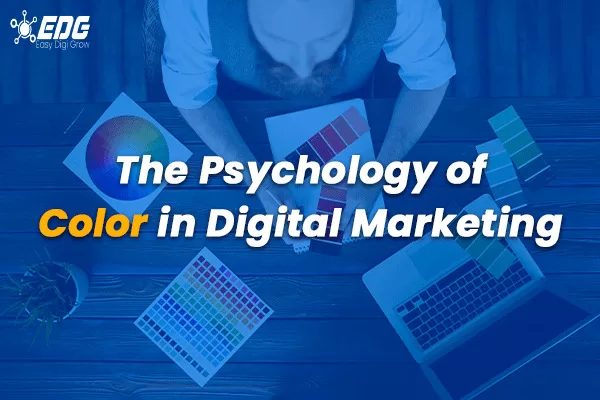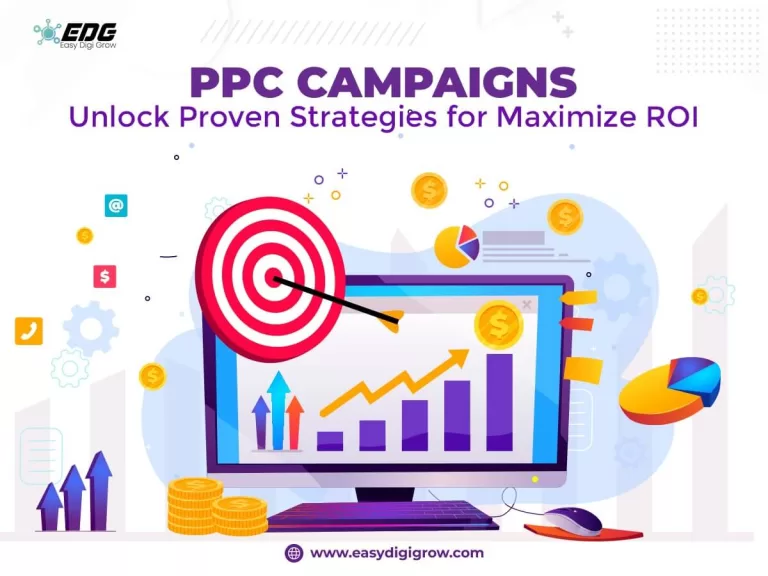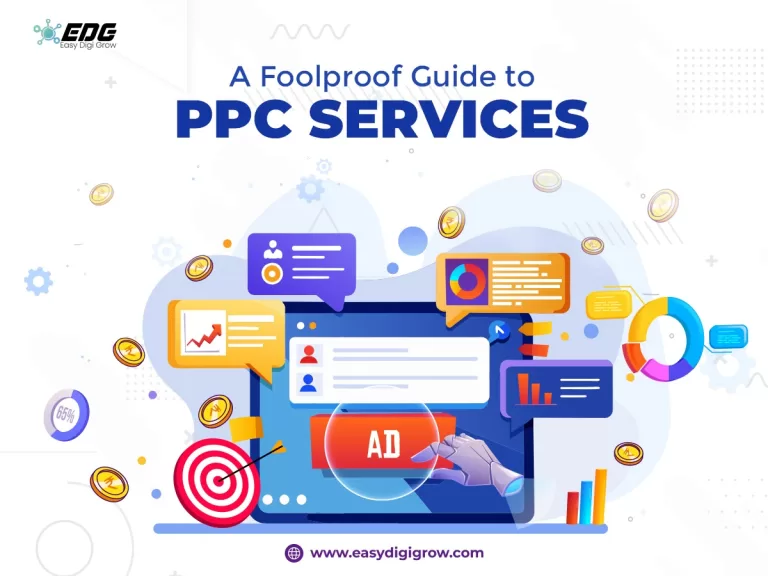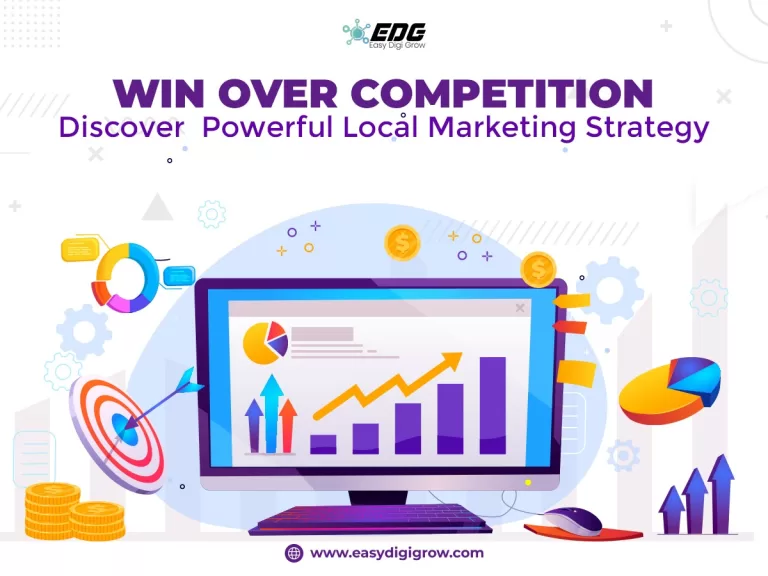In digital marketing, color is a powerful tool.
Color has the ability to evoke emotions, influence moods, and shape perceptions. It plays a crucial role in capturing your audience’s attention, building brand recognition, and ultimately driving conversions. As a small business owner in India, understanding the psychology of color in digital marketing can give you a competitive edge.
In this blog post, we will delve into the fascinating world of color psychology and provide you with practical tips on how to use colors to influence your audience’s perception.
The Power of Color Psychology
Color psychology explores the impact of colors on human behavior and emotions. It explores the connection between color and our psychological and physiological responses. Colors have the ability to stimulate various parts of the brain, triggering specific emotions and associations.
By strategically using the psychology of color in digital marketing materials, you can create a powerful impact on your audience and shape their perception of your brand.
Understanding Color Associations
Before diving into the practical applications of color in digital marketing services, it is important to understand the general associations and emotions that different colors evoke. Let’s explore the primary colors and their psychological implications:
- Red: Red is an attention-grabbing color that symbolizes passion, excitement, and urgency. It can stimulate appetite and create a sense of urgency, making it an effective color choice for sales promotions and limited-time offers.
- Blue: The color blue is commonly linked to feelings of trust, reliability, and a sense of calm. It has a soothing effect and can convey a sense of security and professionalism. Blue is commonly used by technology companies and financial institutions to build trust with their audience.
- Yellow: Yellow is a bright and energetic color that represents happiness, optimism, and warmth. It can help create a sense of cheerfulness and positivity. However, it is important to use yellow sparingly as it can also be associated with caution and anxiety.
- Green: Green is closely linked to nature, growth, and freshness. It represents harmony, balance, and fertility. Green is often used by brands promoting eco-friendly products or those in the health and wellness industry.
- Orange: Orange is a vibrant color that combines the energy of red and the cheerfulness of yellow. It represents enthusiasm, creativity, and confidence. Orange can be a powerful color choice for brands targeting a youthful and adventurous audience.
- Purple: Purple is associated with luxury, power, and creativity. It has a sense of royalty and elegance. Purple can be an excellent choice for brands that want to convey sophistication and exclusivity.
- Pink: Pink is often associated with femininity, nurturing, and sweetness. It has a calming effect and can be used to target a female audience or evoke feelings of tenderness and care.
Our trending guide: Discover the Untapped Power of Colors in Web Design
How to Choose Colors According to the Psychology of Color in Digital Marketing

When it comes to digital marketing, selecting the right colors is paramount in leveraging the psychology of color. By understanding how different colors influence emotions and perceptions, you can strategically choose colors that align with your brand and resonate with your target audience.
To assist you in this process, here are some steps to follow when selecting colors based on the psychology of color in digital marketing:
- Define Your Brand Identity
First and foremost, clearly define your brand’s identity, values, and target audience. This foundational step will guide your color choices and ensure consistency throughout your digital marketing materials.
- Research Color Associations
Next, conduct research to familiarize yourself with the general associations and emotions that different colors evoke. While personal and cultural factors can influence these associations, there are common psychological effects associated with specific colors.
- Consider Your Target Audience
Your target audience plays a significant role in color selection. Different demographic groups may have diverse preferences and responses to colors. Take into account factors such as age, gender, cultural background, and geographic location.
- Create a Color Palette
A color palette comprises a set of colors that will be consistently used across your digital marketing materials. Start by selecting a primary color that reflects your brand’s personality and values. Then, choose complementary colors that harmonize well and support your primary color.
- Test and Iterate
Colors can have a significant impact on audience perception, but it’s important to remember that individual preferences can vary. Test your color choices by creating sample graphic designs or mock-ups and seek feedback from your target audience or focus groups.
- Be Consistent
Consistency is key when it comes to color usage in digital marketing. Once you have established your color palette, ensure that it is consistently applied across all your digital marketing channels, including your website, social media profiles, email campaigns, advertisements, and videos.
- Stay Updated
Stay up-to-date with current design and color trends to ensure that your digital marketing materials remain fresh and relevant. Color preferences can evolve over time, so periodically review your color choices to ensure they align with the evolving preferences of your target audience.
Incorporating the psychology of color into your digital marketing strategy can significantly impact how your brand is perceived and the success of your marketing efforts.
Applying Color Psychology in Digital Marketing
Now that we have an understanding of the psychological implications of different colors, let’s explore how you can apply this knowledge to your digital marketing efforts.
- Branding and Logo Design
For logo and brand identity design, consider the emotions and associations you want your brand to evoke. Select colors that match your brand’s personality and values.
For example, if you run a yoga studio promoting tranquility and serenity, using shades of blue and green can help create a sense of calmness and relaxation.
- Website Design
Your website is the digital storefront of your business, and colors play a crucial role in shaping the user experience. Use a consistent color scheme throughout your website design that aligns with your brand identity. Consider the emotions you want to evoke on different pages.
For example, using warm tones like orange and yellow on your call-to-action buttons can create a sense of urgency and encourage visitors to take action.
- Social Media Marketing
Social media platforms provide an excellent opportunity to showcase your brand’s personality and engage with your audience. Use colors consistently across your social media profiles as a part of your social media marketing strategy to build brand recognition. Experiment with different color combinations in your visual content to evoke specific emotions and capture attention.
For example, using bold and contrasting colors in your Instagram posts can help your content stand out in the feed.
- Email Marketing
Colors can significantly impact the effectiveness of your email marketing campaigns. Use colors strategically to create a visual hierarchy and guide the reader’s attention. For instance, use a bold color for your call-to-action button to make it more prominent and increase click-through rates. Additionally, consider the psychological implications of colors in the context of your email content.
If you are promoting a limited-time sale, incorporating red accents can create a sense of urgency and drive conversions.
- Video Marketing
Videos have become a popular medium for digital marketing, and colors can play a crucial role in video production. Consider the emotions you want to evoke in your audience and choose color grading techniques that align with those emotions. You may want to explore our video marketing services to discover the benefits of custom video marketing strategies tailored to your business.
For example, using warm and earthy tones can create a cozy and nostalgic feeling, while cooler tones can convey a sense of professionalism and sophistication.
- Advertisements and Promotions
When creating advertisements and promotions, colors can be used strategically to capture attention and drive action. Consider the platform where your ads will be displayed and choose colors that stand out from the surrounding content.
Additionally, be mindful of cultural associations with colors, especially if you are targeting an international audience. Colors that are considered lucky or unlucky in certain cultures can influence how your audience perceives your brand.
Conclusion
Incorporating the psychology of color in digital marketing strategy can significantly influence how your brand is perceived, driving engagement and conversions. Colors have the power to evoke emotions, influence moods, and shape perceptions, making them a valuable asset for small businesses in India.
When it comes to digital marketing services in Delhi that can help you effectively utilize the psychology of color, EasyDigiGrow stands out as the best digital marketing company to assist you. With their expertise in creating impactful digital marketing campaigns and understanding the nuances of color psychology, we can help your business thrive in the competitive online landscape.
Take advantage of the power of color psychology in your digital marketing efforts, and watch as your brand captivates and influences your audience, leading to increased success and growth for your small business in India.
FREQUENTLY ASKED QUESTIONS
- How do colors influence consumer behavior?
Colors can evoke specific emotions and associations, which in turn influence consumer behavior, including their purchase decisions and brand preferences.
- Can colors affect brand recognition?
Yes, colors play a crucial role in building brand recognition. Consistent use of colors in branding materials helps create visual associations with a brand and enhances brand recall.
- Should I stay updated with design and color trends?
Yes, staying updated with current design and color trends is important to ensure that your digital marketing materials remain fresh and relevant. Color preferences can evolve over time, and following trends helps you stay competitive.
- How can I leverage color psychology in social media marketing?
Use colors consistently across your social media profiles to build brand recognition. Experiment with different color combinations in visual content to evoke specific emotions and capture attention.
- Can color choices impact website conversions?
Yes, color choices can impact website conversions. By using colors strategically, such as using contrasting colors for call-to-action buttons or incorporating urgency-inducing colors, you can encourage visitors to take action.
- How can EasyDigiGrow assist me in utilizing color psychology in digital marketing?
EasyDigiGrow, as a digital marketing company, can provide expertise in creating impactful digital marketing campaigns that leverage color psychology. We can help you make informed color choices and implement them effectively in your marketing materials.
















